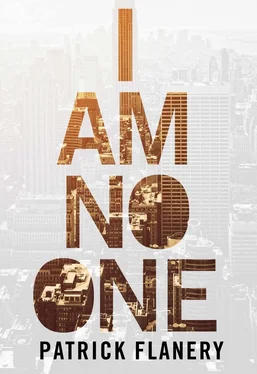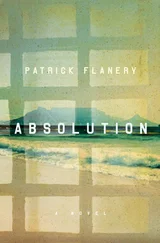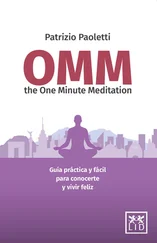Whenever I looked online at the photographs of friends gathered for family reunions or making cross-country road trips from Kansas to California to visit siblings or grandparents, I felt such an acute sense of dislocation that the desire to leave the life I had built in Britain grew so intense I no longer felt invested in it, I no longer cared whether I did all that was expected of me, I wanted only to write books that would get me noticed by American universities, to publish in the right kinds of scholarly journals, to give the sorts of plenary lectures and conference papers that would make the senior members of leading History departments in the US turn to each other when they thought of who they might wish to add to their ranks and say, without having to pause more than a few seconds, ‘what about Jeremy O’Keefe?’, and another of their colleagues would say, ‘wasn’t he at Columbia?’ and ‘didn’t he fail to get tenure?’ and ‘yes, but he got very lucky, he’s worked hard, he put things back together at Oxford and whatever happened at Columbia is old news, just look at his publications, a list of books and articles the length of my arm, and his monograph on the private lives of informants was pathbreaking in its archival scope and intellectual cogency.’
Self-regarding, certainly, but that was the tenor of my thinking as I sat in my Victorian semi-detached house on nights of bone-numbing damp when the temperature dipped to just below freezing, gazing out my bedroom window, sometimes lying in bed with the curtains open wide enough that I could see into Fadia’s window, the lights of her room burning late, blinds open as she worked at her desk, often curled up in the drapery of that great white robe, and this all after that night when I first invited her over for a drink. It must have been February or March last year, the calculus of time is not insignificant in this case, but my calendar and diary reveal nothing specific. For a historian, I find the dates of my own life always blur and fragment the harder I work to pin them down. Perhaps it was then, perhaps later. What matters is that I reached out, she responded, and our course was set.
She came to the door some fifteen minutes after I sent the message, giving me just enough time to change out of my pajamas and back into jeans, a shirt and sweater, put on a spritz of cologne and deodorant, pass a comb through my hair, and when I opened the door she was standing there in one of her black coats with no scarf, neck exposed, eyes slightly red round the lids, as if she had been crying some hours before, or perhaps was just tired and cold, and in her hands she held a box of chocolates, the kind of fine Parisian confection that might have been a gift from her parents (who by that point, she had told me, were established in Mayfair, in a house as tall and narrow as an obelisk, just around the corner from the Saudi Embassy), or perhaps something she herself kept in stock for sudden invitations necessitating a gift for the host. It was a perfectly square white box containing sixteen chocolates decorated with such precision they achieved the quality of art. I was expecting no gift and the appearance of the box, the finish of its paper on my fingertips, changed my understanding of what was happening. I felt, truly, as though I was the one being wooed.
‘Chocolate at night,’ she coughed, ‘I suppose it’s not so good for one, but perhaps it’s also what the hour demands.’
I draped her coat on a hook and led her down the dogleg hall, imagining as she walked behind me what she must be thinking, that her supervisor was trying to seduce her, that he was lonely, desperate, desiring, or that he was concerned for her wellbeing. Perhaps, supposing she knew little of American habits, she might have dismissed the hour as some odd cultural affectation, a New Yorker’s refusal to believe any city ever slept, and yet those chocolates told me that whatever I was feeling, she also felt an attraction of some kind, although in retrospect I can see how she might have brought chocolates simply to be polite, because I was her professor, her supervisor and mentor, in a sense also her patron, and if invited by such a man to his house at night, what could a young woman like her do but accept? Did I give her the choice to say no? Did she even think it possible? Such questions now haunt me, although what happened between us was not, I am certain, a matter of coercion.
The lights were on in the galley kitchen and beyond, in the large addition I’d had built not long after buying the house, a room that doubled as a dining space and library. As she moved to take a seat at the table I pulled the curtains closed, though someone would have had to climb over the garden wall to see us.
‘Why don’t you sit there?’ I pointed to a couch on the other side of the room. ‘What would you like? I still have that single malt you gave me.’ I knew by then that Fadia was sufficiently westernized to drink alcohol, as seemed to be the case with most of the young Muslim women I had encountered during my years in Britain, many of them having been educated at British boarding schools, with parents who split their lives between London and the Middle East. Although she had declared herself an atheist I had the sense that culturally she remained Muslim to a degree. I knew, too, that other Muslim students and colleagues I encountered often took what I thought of as a Roman Catholic approach to their faith, picking and choosing the ways they might adhere to the rules of Islam; some even ate pork, I had seen it at College dinners, and very few wore headscarves or veils — at least not at my College, though the numbers of women in Oxford, and particularly in Cowley, where I lived, who were completely covered seemed only to grow year to year, while the men with their beards and traditional clothes congregated in crowds that increased by an even larger factor. I would be lying if I said I had been wholly comfortable among them and yet I wanted, always, to try to keep an open mind. A taxi driver, taking me home from the station after I had returned from London one day when a number of men in Birmingham were arrested on terror-related charges, cursed throughout the journey, ‘I been fucking living here forty fucking years and I never seen fucking anything like this fucking nonsense. Always this fucking minority fucking up everything for the rest of us. This is fucking nothing to do with us, you understand, Professor? All this fucking terrorism nothing fucking at all to do with us ! All I want to do is go home, I so fucking tired, have a quiet drink,’ the man had laughed, ‘so my wife and children don’t see. I’m a bad Muslim!’
‘Whisky, no, it’ll keep me awake,’ Fadia nibbled her lip in a way that made me feel guilty. There was something nervous, even childish about the gesture, and I asked myself what it really was I thought I might be doing. Was I thinking of trying to seduce my student, or was I offering no more than innocent late-night hospitality, if that is not a contradiction in terms, hospitality of the kind I would extend to my daughter if I happened to see her passing my apartment late one night, alone and looking miserable as Fadia had so often appeared when I caught sight of her through my bedroom curtains. ‘Do you have any wine?’
‘Red or white?’
‘With chocolate, I think it should be red, don’t you?’
‘Banyuls? Or would you prefer port?’
‘Banyuls would be lovely.’
I poured, we clinked our glasses, and I took a chair next to the couch where Fadia was sitting. I am certain she was wearing some variation of her usual monochromatic uniform, gray wool slacks and a white sweater, mohair, with a cowl neck, and a glimpse of a delicate silver necklace against her skin. I opened the box of chocolates and offered her one. Some part of me believed a woman as slender as Fadia would decline a chocolate, but she took one without hesitation, her long index finger and thumb closing around its contours.
Читать дальше












